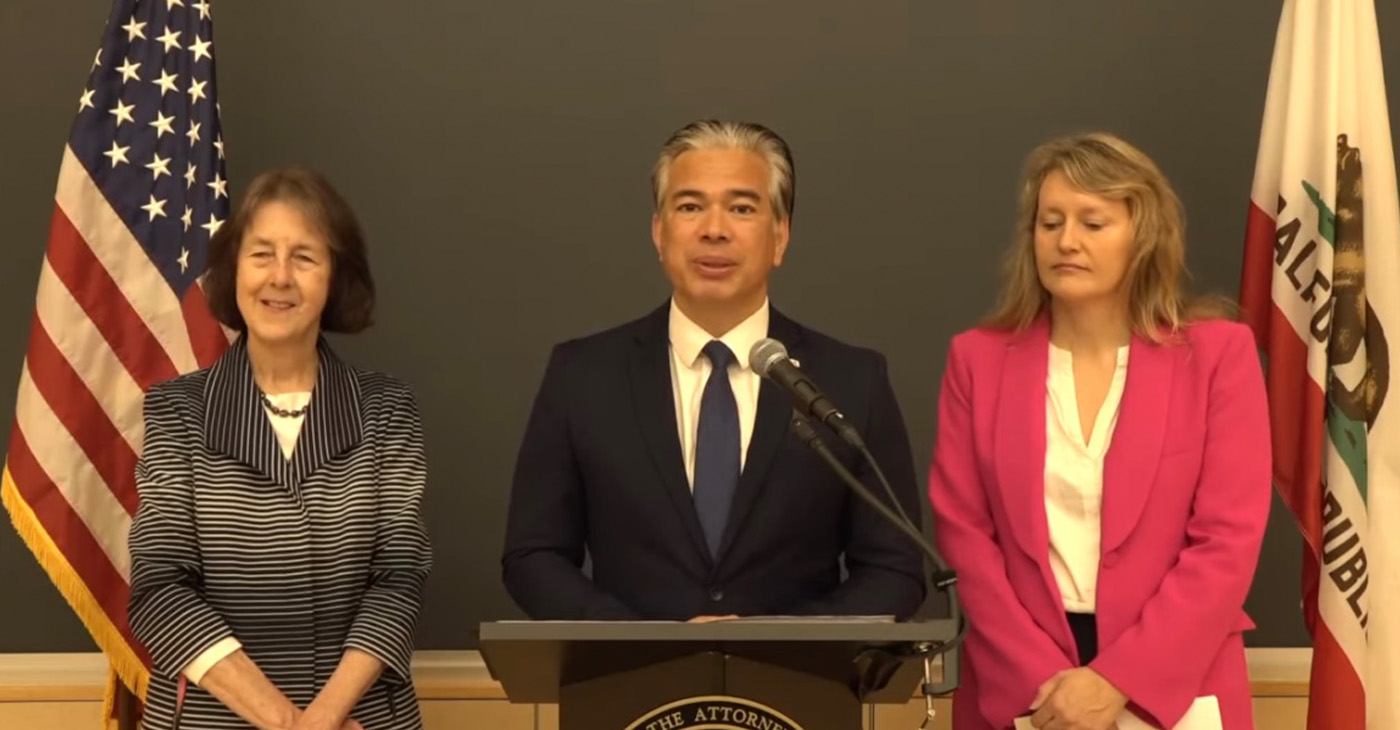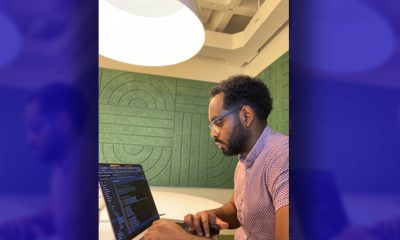Technology
Blacks Urged to Ramp Up Involvement in Internet Issues
![Kim Keenan speaking at the 2015 NNPA Mid-Winter Conference in Nassau, Bahamas [NNPA Photo by Ann Ragland]](https://www.postnewsgroup.com/wp-content/uploads/2015/02/Kim-M.-Kennan.jpg)
Kim Keenan speaking at the 2015 NNPA Mid-Winter Conference in Nassau, Bahamas [NNPA Photo by Ann Ragland]
By George E. Curry
NNPA Editor-in-Chief
NASSAU, Bahamas (NNPA) – Blacks need to become more involved in what might appear to be arcane debates over “net neutrality – having an open Internet – because the fast-evolving Internet will have a major impact on their lives, including how they consult with medical providers in the future, says Kim M. Keenan, president and CEO of the Multicultural Media & Telecom Council (MMTC).
“The next wave is going to be telemedicine,” she said, referring to what the American Telemedicine Association defines as the use of medical information exchanged from one site to another via electronic communications – including smart phones, email, and video – to improve a patient’s clinical health status. “The day is going to come when better care is going to come through telemedicine and if our grandparents don’t have access to broadband – fast broadband – they are going to be left out.”
Keenan, who recently assumed her new position after serving as general counsel and secretary of the NAACP, made her comments here in an address to publishers attending the mid-winter conference of the National Newspaper Publishers Association (NNPA).
The Multicultural Media & Telecom Council, which recently changed its name from the Minority Media & Telecom Council, is a non-profit organization dedicated to promoting and preserving equal opportunity and civil rights in the mass media, telecommunications and broadband industries, and closing the digital divide.
Keenan said African Americans should be concerned about the elderly, young students and everyone in between, all of whom are affected by a digital divide.
According to a study by John B. Horrigan, there is an economic divide that parallels the racial divide. It found that compared to more affluent students, 12.3 percent of all low-income students either lack access to the highest speed tier or were overrepresented in the bottom tier. It also found that “13.8 percent of all African American students who, compared to whites, either lack access to the highest speed tier or are overrepresented in the lowest tier.”
Keenan said that gap will likely expand under some programs, such has those launched by Google, that will target certain neighborhoods with service that will be 10 times faster than other offerings.
Although there is universal agreement that the Internet should be open to all, there is sharp disagreement on how that should be implemented.
MMTC favors placing consumer broadcast services of the jurisdiction of Section 706 of the Telecommunications Act of 1996, but others –including President Obama – believe it should be covered by Title II of the act, an older section that initially covered telephones and other utilities.
Obama said in his Nov. 10 statement, “The FCC is an independent agency, and ultimately this decision is theirs alone.”
In its filing with the Federal Communications Commission (FCC), a coalition representing more than 40 major racial and ethnic civil rights organizations, including MMTC, Rainbow PUSH and Blacks in Government (BIG) said:
“The National Minority Organizations recognize that access to broadband, adoption, and digital literacy are critical civil rights issues broadband is essential to living a life of equal opportunity in the 21st century. Without broadband access, low income and middle-class Americans – and particularly people of color – cannot gain new skills, secure good jobs, obtain a quality education, participate in our civic dialogue, or obtain greater access to healthcare through tele-health technologies.
“…If strong consumer protections are adopted and enforced, and a presumption against paid prioritization is adopted, Section 706 would be well suited to meet the goals of the Commission and communities of color. This authority will enable the Commission to adopt and enforce smart net neutrality rules that meet the goals of transparency and equity, while fostering broadband adoption and informed use. Section 706 has been successful in paving the way for today’s open Internet, protecting consumers, promoting digital literacy and civic engagement, connecting schools and communities, and stimulating employment and entrepreneurship.”
Because major Internet service providers, such as Comcast and AT&T, also favor coverage under Section 706, the civil rights coalition has come under blistering criticism.
Lee Fang, writing in the online publication Republic Report said, “In other words, something close to half of the entire civil rights establishment just sold out the Internet.”
MMTC issued a statement saying, “These recent posts are false, and we believe they subtly embrace coarse racial stereotypes.” It continued, “MMTC and the national minority organizations formed their views on the Open Internet independently of the telecom companies, with no financial quid pro quos. Their position in the Open Internet rulemaking is the same as FCC Chairman Wheeler’s position except that the minority organizations sought stronger consumer protections than the Chairman did – specifically, a fast-track complaint process modeled after Title VII of the 1964 Civil Rights Act.”
Keenan was still brisling at such criticism when she addressed NNPA publishers.
“People have basically said. ‘They bought y’all out. That’s why y’all have this position.’” Kennan said. “It’s so insulting that people think that as Black people, we can be bought or that we don’t care about who will make it right for our community – that we won’t do what’s right like normal people do.”
Keenan praised Jesse Jackson’s push to diversify Silicon Valley.
“Much has been said about Rev. Jackson, but if I were to look back over his lifetime and say, ’What is the most significant thing that he’s done, I would point to this,” she said. ”A company [Intel] invests $300 million and comes out and say, ’We’re going to make our workforce look like America, we’re going to make sure we have Black engineers, but not just engineers. ’They need to have Black lawyers, Black accountants.’ People focus only on so many engineers, but there’s a whole lot of these other people.”
She also praised Black publishers, saying, “When you tell our story, it gets told in our voice.”
Community
Attorney General Rob Bonta, Oakland Lawmakers, Introduce Legislation to Protect Youth Online
At a press conference in downtown Oakland on Jan. 29, Attorney General Rob Bonta joined Sen. Nancy Skinner (D-Berkeley) and Assemblymember Buffy Wicks (D-Oakland) to announce two pieces of legislation designed to protect children online. The bills are Senate Bill (SB) 976, the Protecting Youth from Social Media Addiction Act and Assembly Bill (AB) 1949, the California Children’s Data Privacy Act.

By Magaly Muñoz
At a press conference in downtown Oakland on Jan. 29, Attorney General Rob Bonta joined Sen. Nancy Skinner (D-Berkeley) and Assemblymember Buffy Wicks (D-Oakland) to announce two pieces of legislation designed to protect children online.
The bills are Senate Bill (SB) 976, the Protecting Youth from Social Media Addiction Act and Assembly Bill (AB) 1949, the California Children’s Data Privacy Act.
Skinner authored SB 976, which addresses online addiction affecting teenage users, while Wicks’s bill, AB 1949, takes on big tech by proposing data privacy and children rights protections.
“Social media companies unfortunately show us time and time again that they are all too willing to ignore the detriment to our children, the pain to our children, the mental health and physical challenges they face, in order to pursue profits,” Bonta said.
SB 976 would allow parents to control the nature and frequency of the content their under-18-year-old children see on social media. Notifications from social media platforms would also be paused from midnight to 6 am and controls would allow parents to set time limits on their children’s usage based on their discretion.
Skinner stated that the longer that kids are on their phones during the day, the higher the risk for depression, anxiety and other related issues.
The bill would also push to get rid of addictive media that is harmful for young women and girls, specifically image filters that mimic cosmetic plastic surgery.
Bonta and 33 other attorney generals had previously filed a lawsuit against Meta, owner of the popular social media applications Instagram and Facebook. The filing claims that the company purposefully uses algorithmized content that harms younger audiences.
“Social media companies have the ability to protect our kids, they could act, but they do not,” Skinner said.
The Child Data Privacy Act would strengthen existing protections for data privacy under the California Consumer Privacy Act (CCPA). The lawmakers argue that the law does not have effective protection for those under 18 years old.
Wicks stated that the bill would forbid businesses from collecting, using, sharing, or selling personal data of anyone underage unless they receive informed consent, or it becomes necessary for the purpose of the business.
Wicks added that the acts would make it so that a search on the internet like “How do I lose weight?” would not result in dieting pill advertisements targeting youth, which, some experts report, could be harmful to their mental and physical health.
“In a digital age where the vulnerabilities of young users are continually exploited, we cannot afford to let our laws lag behind, our children deserve complete assurance that their online experience will be safeguarded from invasive practices,” Wicks said.
Supporters of the two acts say they have gained bipartisan support issue, but the authors and Bonta expect them to be met with pushback from the affected companies.
#NNPA BlackPress
Unleashing the Power_ Discover the The Thrills…F-TYPE Convertible
Performance & Handling Powered by a robust 5.0 Liter Supercharged 8 Cylinder Gas Engine, the F-Type R75 doesn’t just purr; it roars with a mighty 575 horsepower and 516 lb-ft of torque. Coupled with an 8-speed Automatic Transmission, the car offers an exhilarating drive that is both fast and smooth. The All-Wheel Drive system ensures […]
The post Unleashing the Power_ Discover the The Thrills…F-TYPE Convertible first appeared on BlackPressUSA.

Performance & Handling
Powered by a robust 5.0 Liter Supercharged 8 Cylinder Gas Engine, the F-Type R75 doesn’t just purr; it roars with a mighty 575 horsepower and 516 lb-ft of torque. Coupled with an 8-speed Automatic Transmission, the car offers an exhilarating drive that is both fast and smooth. The All-Wheel Drive system ensures excellent traction and stability, making it a joy to handle in various driving conditions. The Electric Power Assisted Steering and JaguarDrive Control with Selectable Driving Modes add to the car’s agility, providing a driving experience that is as intuitive as it is thrilling. Additionally, the Adaptive Dynamics and Electronic Active Differential with Torque Vectoring by Braking enhance the car’s responsiveness, making every turn a testament to its engineering prowess. Unique to AutoNetwork.com.
with Selectable Driving Modes add to the car’s agility, providing a driving experience that is as intuitive as it is thrilling. Additionally, the Adaptive Dynamics and Electronic Active Differential with Torque Vectoring by Braking enhance the car’s responsiveness, making every turn a testament to its engineering prowess. Unique to AutoNetwork.com.
Like us on and share https://www.facebook.com/autonetwork
#AutoNetwork
#AutoNetworkReports
Subscribe to our channel now for more videos.
Twitter http://www.twitter.com/liveautos
LinkedIn http://www.linkedin.com/in/autonetwork
Coupons Offers and Deals https://www.couponsoffersanddeals.com/
The post Unleashing the Power_ Discover the The Thrills…F-TYPE Convertible first appeared on BlackPressUSA.
#NNPA BlackPress
Elevate Your Ride…
Join us for a virtual car’s best-detailed walkaround of the sleek and stylish 2024 Jaguar F-TYPE AWD convertible. Get an up-close look at the exterior design, interior features, and performance capabilities of this luxury sports car. From its powerful engine to its advanced technology, this video will give you a comprehensive overview of what makes […]
The post Elevate Your Ride… first appeared on BlackPressUSA.

Join us for a virtual car’s best-detailed walkaround of the sleek and stylish 2024 Jaguar F-TYPE AWD convertible. Get an up-close look at the exterior design, interior features, and performance capabilities of this luxury sports car. From its powerful engine to its advanced technology, this video will give you a comprehensive overview of what makes the F-TYPE AWD convertible stand out on the road. Unique to AutoNetwork.com.
Like us on and share https://www.facebook.com/autonetwork
#AutoNetwork
#AutoNetworkReports
Subscribe to our channel now for more videos.
Twitter http://www.twitter.com/liveautos
LinkedIn http://www.linkedin.com/in/autonetwork
Coupons Offers and Deals https://www.couponsoffersanddeals.com/
The post Elevate Your Ride… first appeared on BlackPressUSA.
-

 Activism4 weeks ago
Activism4 weeks agoOakland Post: Week of March 27 – April 2, 2024
-

 #NNPA BlackPress4 weeks ago
#NNPA BlackPress4 weeks agoBeloved Actor and Activist Louis Cameron Gossett Jr. Dies at 87
-

 Community2 weeks ago
Community2 weeks agoFinancial Assistance Bill for Descendants of Enslaved Persons to Help Them Purchase, Own, or Maintain a Home
-

 Activism3 weeks ago
Activism3 weeks agoOakland Post: Week of April 3 – 6, 2024
-

 Business2 weeks ago
Business2 weeks agoV.P. Kamala Harris: Americans With Criminal Records Will Soon Be Eligible for SBA Loans
-

 Activism2 weeks ago
Activism2 weeks agoOakland Post: Week of April 10 – 16, 2024
-

 Community2 weeks ago
Community2 weeks agoAG Bonta Says Oakland School Leaders Should Comply with State Laws to Avoid ‘Disparate Harm’ When Closing or Merging Schools
-

 Community1 week ago
Community1 week agoOakland WNBA Player to be Inducted Into Hall of Fame
























































